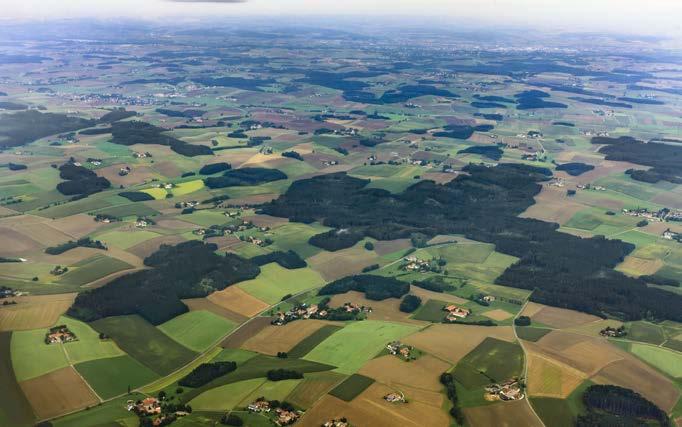
13 minute read
Selected scientific publications
An altered planetary anatomy Humans have transformed much of the planet to produce more and more food, fibre and fuel. Now we need to radically transform this global production ecosystem. Centre researchers offer perspectives in Nature’s exclusive 150th-anniversary collection Nyström, M., J-B. Jouffray, A. V. Norström, B. Crona, P. S. Jørgensen, S. R. Carpenter, Ö. Bodin, V. Galaz, C. Folke. 2019. Anatomy and resilience of the global production ecosystem. Nature 575(7781): 98–108.

Advertisement
Not so smart after all…? A popular concept for building sustainable cities stands on fragile scientific grounds Gren, A., J. Colding, M. BerghauserPont, L. Marcus. 2019. How smart is smart growth? Examining the environmental validation behind city compaction. Ambio 48(6): 580–589.

From conflicts to solutions Conflict in environmental governance is common, what mechanisms exist to get people to collaborate? Baird, J., L. Schultz, R. Plummer, D. Armitage, Ö. Bodin.
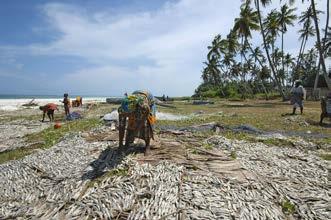
2019. Emergence of collaborative environmental governance: what are the causal mechanisms? Environmental Management 63(1): 16–31.
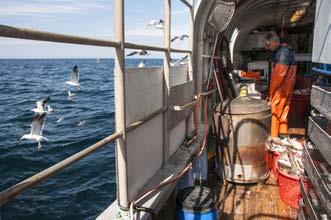
Ecosystem services for men, ecosystem services for women There can be stark differences in how men and women use and experience ecosystem services. This has significant impact on their well-being Fortnam, M., K. Brown, T. Chaigneau, B. Crona, T.M. Daw, D. Goncalves, C. Hicks, M. Revmatas, C. Sandbrook, B. Schulte-Herbruggen. 2019. The Gendered Nature of Ecosystem Services. Ecological Economics159: 312–325.
More complex than the sum of its parts New framework for analysing emergent properties and dynamics in social-ecological systems tested on seven case studies Schlüter, M., L. J. Haider, S. J. Lade, E. Lindkvist, R. Martin, K. Orach, N. Wijermans, C. Folke. 2019. Capturing emergent phenomena in social-ecological systems: an analytical framework. Ecology and Society 24(3): 11.
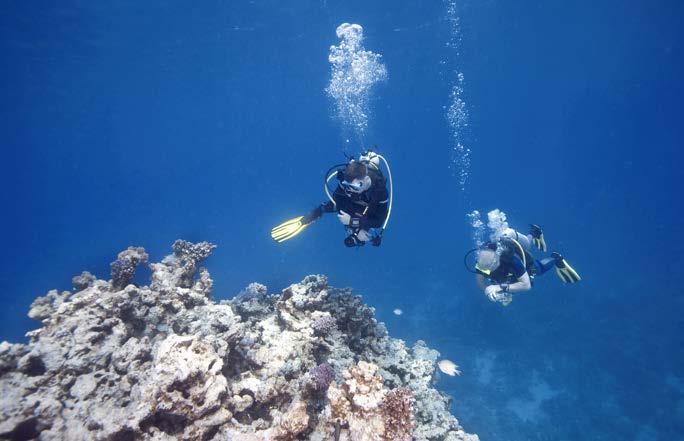
Revisiting coral reef ecology Coral reefs face a new reality dominated by human impact and it is time for traditional coral reef ecological paradigms to follow suit Williams, G. J., N. A. J. Graham, J-B. Jouffray, A. V. Norström, M. Nyström, J. M. Gove, A. Heenan, L. M. Wedding. 2019. Coral reef ecology in the Anthropocene. Functional Ecology 33(6): 1014–1022.Management 63(1): 16–31.
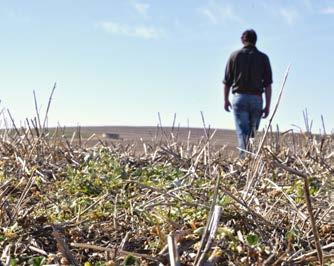
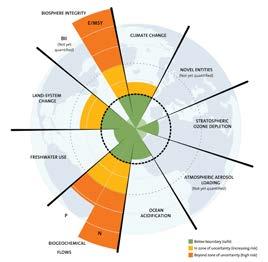
Money for farming or forests? Money sent home by migrants can prevent undesired farmland abandonment, as well as the promise of extensive forest regrowth Ospina, D., G. D. Peterson, A-S. Crépin. 2019. Migrant remittances can reduce the potential of local forest transitions: a social-ecological regime shift analysis. Environmental Research Letters 14(2): 24017.
It’s all about the safe operating space
Ten years after the original publication of the planetary boundaries concept, researchers make an in-depth analysis of academic research and discussion generated by the concept Downing, A. S., A. Bhowmik, D. Collste, S. E. Cornell, J. Donges, I. Fetzer, T. Häyhä, J. Hinton, S. Lade, W. M. Mooij. 2019. Matching scope, purpose and uses of planetary boundaries science. Environmental Research Letters 14(7): 73005.
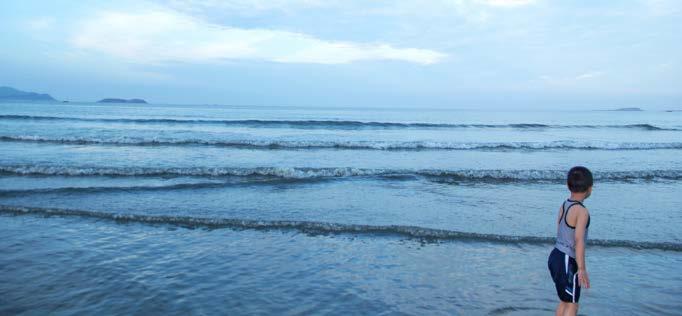
The time is now Only immediate transformation of global business-as-usual economies and operations will sustain nature as we know it – and us – into the future Díaz, S., J. Settele, E. S. Brondizio, H. T. Ngo, J. Agard, A. Arneth, P. Balvanera, K. A. Brauman, S. H. M. Butchart, K. M. A. Chan, L. A. Garibaldi, K. Ichii, J. G. Liu, S. M.
Subramanian, G. F. Midgley, P. Miloslavich, Z. Molnar, D. Obura, A. Pfaff, S. Polasky, A. Purvis, J. Razzaque, B. Reyers, R. R. Chowdhury, Y. J. Shin, I. Visseren-Hamakers, K. J. Willis, C. N. Zayas. 2019. Pervasive human-driven decline of life on Earth points to the need for transformative change. Science 366(6471): 1327–1359.Management 63(1): 16–31.

The complexity of human behaviour Despite its importance to future sustainability, approaches to understanding human behaviour remain too simple Schill, C., J. M. Anderies, T. Lindahl, C. Folke, S. Polasky, J. C. Cardenas, A-S. Crépin, M. A. Janssen, J. Norberg, M. Schlüter. 2019. A more dynamic understanding of human behaviour for the Anthropocene. Nature Sustainability 2(12): 1075–1082.
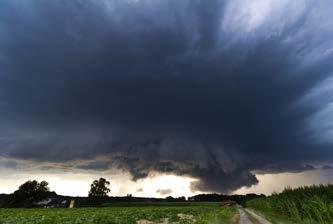
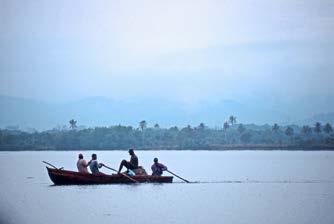
What time tells us An in-depth review of existing approaches of time series networks, covering their methodological foundations, interpretation and practical considerations with an emphasis on recent developments Zou, Y., R. V. Donner, N. Marwan, J. F. Donges, J. Kurths. 2019. Complex network approaches to nonlinear time series analysis. Physics Reports 787: 1-97.
Know your place Experience dictates influence among fishers, with older fishers and information brokers having distinct roles in shaping catch patterns for large- and small-sized fish species Alexander, S. M., P. P. M. Staniczenko, Ö. Bodin. Social ties explain catch portfolios of small-scale fishers in the Caribbean. Fish and Fisheries doi:10.1111/faf.12421.
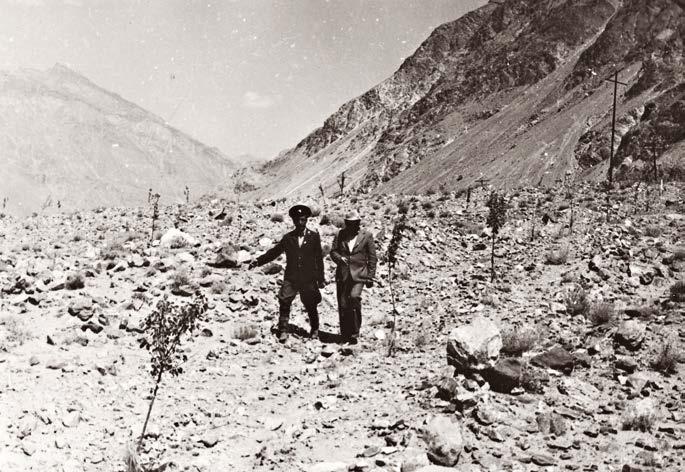
Striving for sustainable forestry: history matters Applying Elinor Ostrom’s principles on common pool resources management demonstrates how forest management in the Pamir Mountains may not be so tragic after all. But Soviet-era legacy lingers, new research shows Haider, L. J., B. Neusel, G. D. Peterson, M. Schlüter. 2019. Past management affects success of current joint forestry management institutions in Tajikistan. Environment, Development and Sustainability 21, 2183–2224.

Invisible resilience in the Anthropocene Uncovering society’s hidden footprint on the water cycle and its implications for future water security Keys, P. W., M. Porkka, L. Wang-Erlandsson, I. Fetzer, T. Gleeson, L. J. Gordon. 2019. Invisible water security: moisture recycling and water resilience. Water Security 8: 100046.
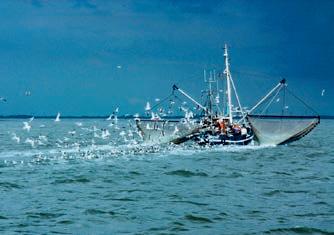
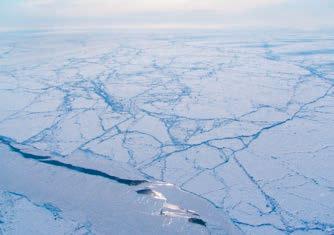
Help from an unexpected source Accounting can be much more than just crunching numbers. Imagine it saving our environment Bebbington, J., H. Österblom, B. Crona, J-B. Jouffray, C. Larrinaga, S. Russell, B. Scholtens. 2019. Accounting and accountability in the Anthropocene. Accounting, Auditing & Accountability Journal 33(1): 152–177.
A digital backlash on the planetary health diet
How a pro-meat social media campaign attacking research related to healthy diets may have infl uenced social media audiences Garcia, D., V. Galaz, S. Daume. 2019. EATLancet vs yes2meat: the digital backlash to the planetary health diet. The Lancet 394(10215): 2153–2154.
Time for an emergency response Nine climate tipping points now are now “active”, which means the situation is urgent and we need an emergency response, warn scientists Lenton, T. M., J. Rockström, O. Gaffney, S. Rahmstorf, K. Richardson, W. Steffen, H. J. Schellnhuber. 2019. Climate tipping points – too risky to bet against. Nature 575(7784): 592–595.
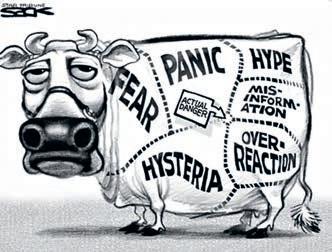
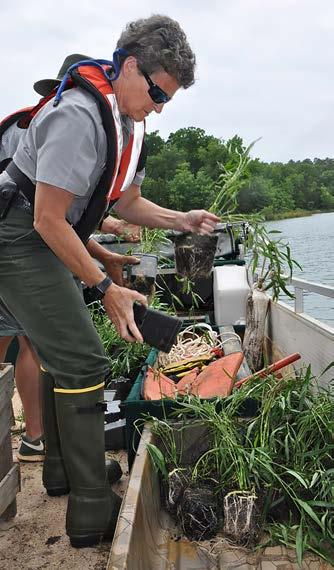
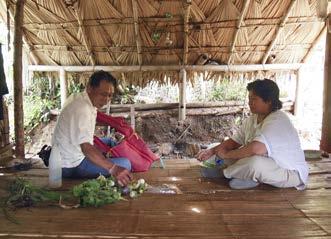
No community or ecosystem is an island
Why thinking globally and acting locally can actually undermine sustainability at larger scales – and how to make sure that it doesn’t Ringsmuth, A. K., S. J. Lade, M. Schlüter. 2019. Cross-scale cooperation enables sustainable use of a common-pool resource. Proceedings of the Royal Society B: Biological Sciences 286: 1913.
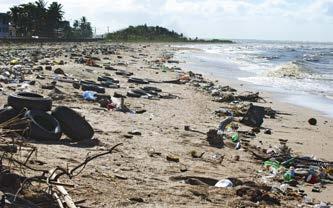
Solutions that provide synergies Environmental policy instruments must be used to deal with global environmental problems Sterner, T., E. B. Barbier, I. Bateman, I. van den Bijgaart, A-S. Crépin, O. Edenhofer, C. Fischer, W. Habla, J. Hassler, O. Johansson-Stenman, A. Lange, S. Polasky, J. Rockström, H. G. Smith, W. Steffen, G. Wagner, J. E. Wilen, F. Alpiza, C. Azar, D. Carless, C. Chavez, J. Corial, G. Engström, S. C. Jagers, G. Kohlin, A. Lofgren, H. Pleijel, A. Robinson. 2019. Policy design for the Anthropocene. Nature Sustainability 2(1): 14–21.
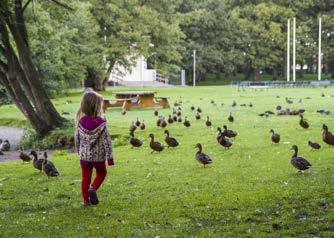
Being biocultural
Why biocultural diversity can contribute to both local and global sustainability Merçon, J., S. Vetter, M. Tengö, M. Cocks, P. Balvanera, J. A. Rosell, B. Ayala-Orozco. 2019. From local landscapes to international policy: contributions of the biocultural paradigm to global sustainability. Global Sustainability 2: e7.
What they talk about when they talk about social-ecological systems
As the social ecological system framework celebrates 20 years, researchers analyse its use in scientific publications. Despite increased popularity, a unifying definition is still missing Colding, J., S. Barthel. 2019. Exploring the social-ecological systems discourse 20 years later. Ecology and Society 24(1): 2.
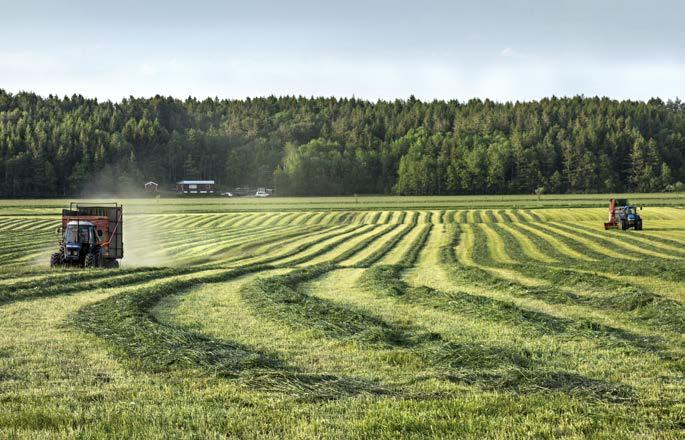
Evolutionary biology for the human age How evolutionary biology can inform governance and policies on a human-dominated planet Jørgensen, P. S., C. Folke, S. P. Carroll. 2019. Evolution in the Anthropocene: informing governance and policy. Annual Review of Ecology, Evolution and Systematics 50: 527–546.
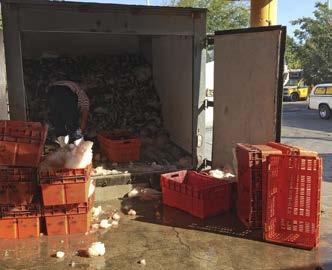

It’s all about who you trade with
The trade relationships that fish buyers have with others strongly influence sustainability and their capacity to adapt to changes Gonzalez-Mon, B., Ö. Bodin, B. Crona, M. Nenadovic, X. Basurto. 2019. Small-scale fish buyers’ trade networks reveal diverse actor types and differential adaptive capacities. Ecological Economics 164: 106338.
A delicious transformation
Proof might really be found in the pudding. Chefs can be key changemakers in a sustainable transformation of our food system Pereira. L. M., R. Calderón-Contreras, A. V. Norström, D. Espinosa, J. Willis, L. Guerrero Lara, Z. Khan, L. Rusch, E. C. Palacios, O. P. Amaya. 2019. Chefs as change-makers from the kitchen: indigenous knowledge and traditional food as sustainability innovations. Global Sustainability 2: e16.
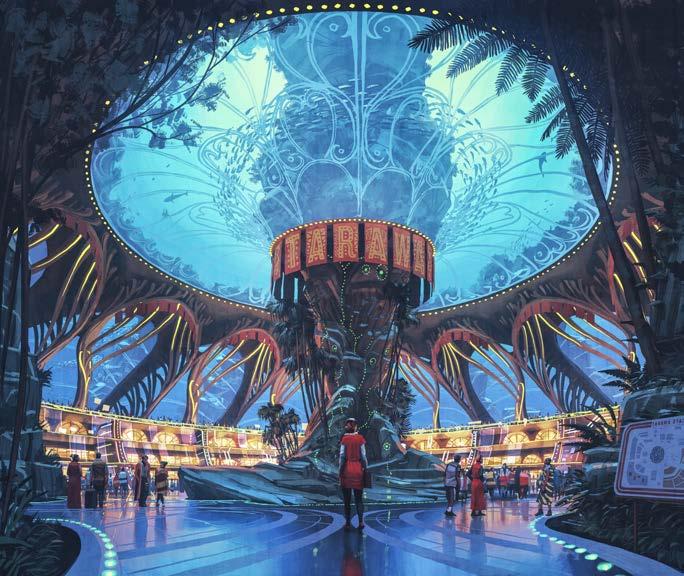
Imagine the future Six characteristics necessary to make scenario processes more inclusive and able to address complex and context-specific problems Pereira, L., N. Sitas, F. Ravera, A. Jimenez-Aceituno, A.
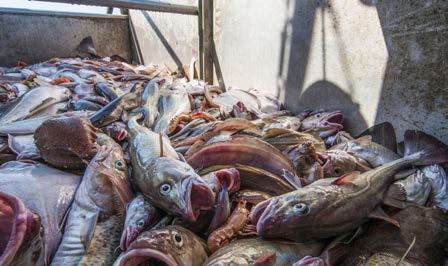
Merrie. 2019. Building capacities for transformative change towards sustainability: imagination in intergovernmental science-policy scenario processes. Elementa: Science of the Anthropocene 7: 35.Ecological Economics 164: 106338.
Banking on a better seafood industry Hardly any bank loan to industries within fisheries or aquaculture includes demands for a more sustainable business approach. Doing so could significantly reduce pressure on seafood resources J.-B. Jouffray, B. Crona, E. Wassénius, J. Bebbington, B. Scholtens. 2019. Leverage points in the financial sector for seafood sustainability. Science Advances 5, eaax3324Ecological Economics 164: 106338.
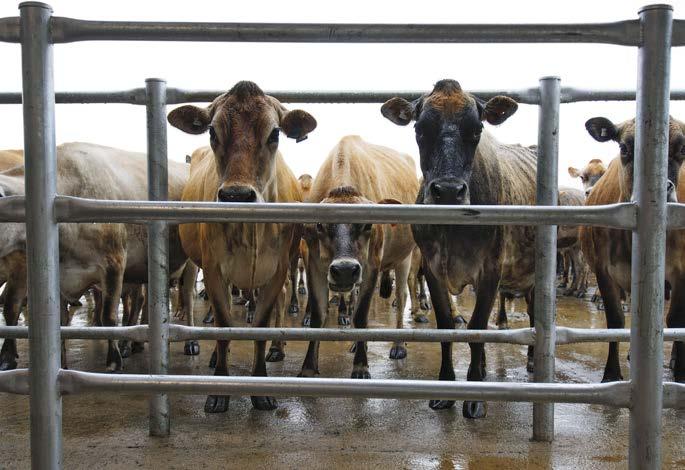
How much is optimal? Optimal antimicrobial use in animal farming must be analysed as a sustainability issue under a social-ecological perspective Lhermie, G., D. Wernlii, P. S. Jørgensen, D. Kenkel, L. W. Tauer, Y .T. Gröhn. 2019. Global resistance to antimicrobials and their sustainable use in agriculture. The Lancet Planetary Health 3(3): 109–110.
Trusting what you know New study tests individuals’ confidence in their knowledge about climate change Fischer, H., D. Amelung, N. Said. 2019. The accuracy of German citizens’ confidence in their climate change knowledge. Nature Climate Change 9(10): 776–785.
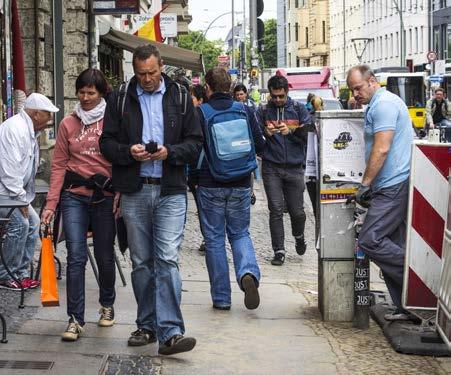
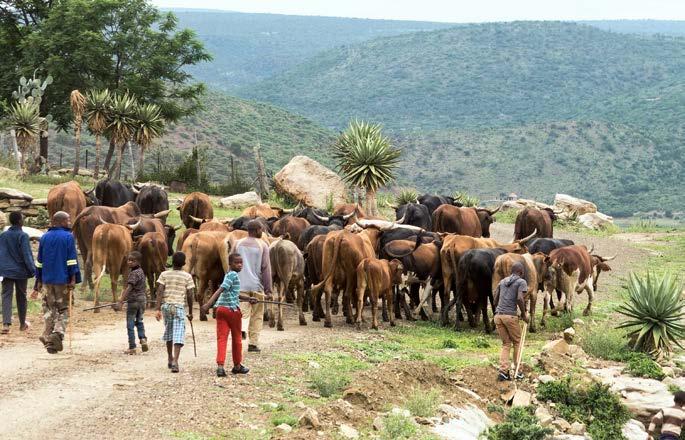
Nurturing nature New research explores how environmental stewardship attitudes are influenced by the benefits humans receive from their environment Masterson, V. A., S. Vetter, T. Chaigneau, T. M. Daw, O. Selomane, M. Hamann, G. Y. Wong, V. Mellegard, M. Cocks, M. Tengö. 2019. Revisiting the relationships between human well-being and ecosystems in dynamic social-ecological systems: implications for stewardship and development. Global Sustainability 2: e8.
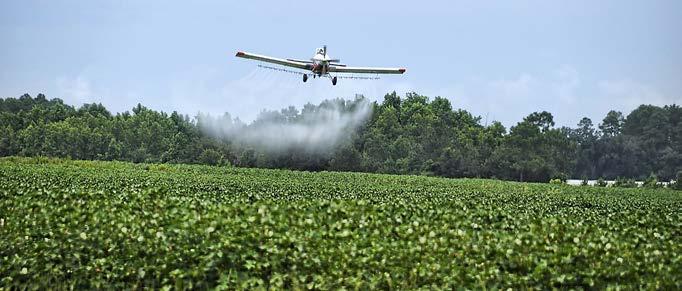
Time for corporate biosphere stewardship
A handful of transnational corporations hold enough power to accelerate (or hinder) transformations towards sustainability Folke, C., H. Österblom, J-B. Jouffray, E. F. Lambin, W. N. Adger, M. Scheffer, B. I. Crona, M. Nyström, S. A. Levin, S. R. Carpenter, J. M. Anderies, S. Chapin, A-S. Crépin, A. Dauriach, V. Galaz, L. J. Gordon, N. Kautsky, B. H. Walker, J. R. Watson, J. Wilen, A. de Zeeuw. 2019. Transnational corporations and the challenge of biosphere stewardship. Nature Ecology & Evolution 3(10): 1396–1403.
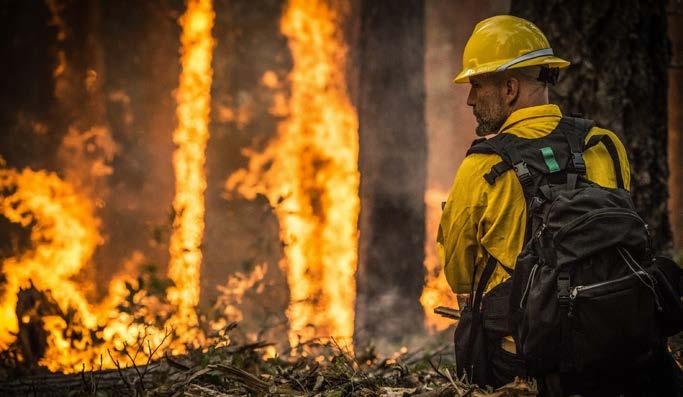
Adding realism to risks A new application adds realism to an economic model that takes into account the probability of environmental risks Crépin, A-S., E. Nævdal. 2019. Inertia Risk: Models of Catastrophes. The Scandinavian Journal of Economics https://doi.org/10.1111/sjoe.12381.
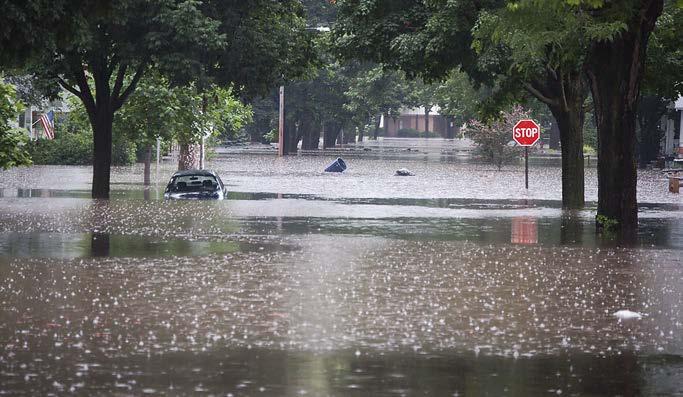
Falling off the radar Sophisticated risk frameworks operated by many international organisations, companies and governments ignore rapidly evolving global risks driven by environmental change Keys, P. W., V. Galaz, M. Dyer, N. Matthews, C. Folke, M. Nyström, S. E. Cornell. 2019. Anthropocene risk. Nature Sustainability 2(8): 667–673.
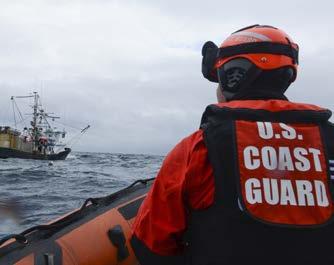

Forty years of conflicts New study presents and analyses the first longitudinal database on fisheries conflicts Spijkers, J., G. Singh, R. Blasiak, T. H. Morrison, P. Le Billon, H. Österblom. 2019. Global patterns of fisheries conflict: forty years of data. Global Environmental Change 57: UNSP 101921.
Dancing on the volcano Humanity is at a crossroads. We need to understand the underlying drivers of human behaviour to avoid collapse of the biosphere and our global civilisation Carpenter, S. R., C. Folke, M. Scheffer, F. R. Westley. 2019. Dancing on the volcano: social exploration in times of discontent. Ecology and Society 24(1): 23.
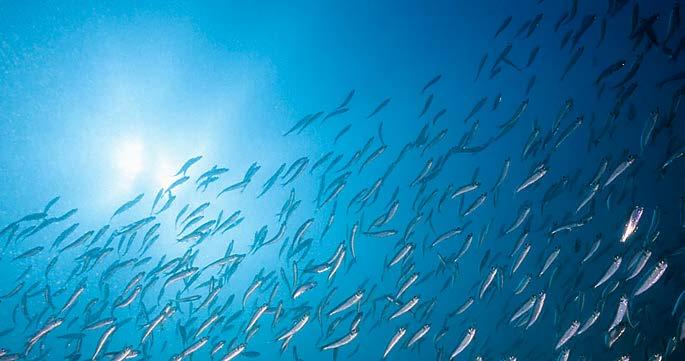
Too warm to swim Comprehensive global analysis shows a warmer ocean will hold lower animal abundance, with fish and mammals to suffer the most Lotze, H. K., D .P. Tittensor, A. Bryndum-Buchholz, T. D. Eddy, W. W. L. Cheung, E. D. Galbraith, M. Barange, N. Barrier, D. Bianchi, J. L. Blanchard, L. Bopp, M. Buchner, C. M. Bulman, D. A. Carozza, V. Christensen, M. Coll, J. P. Dunne, E. A. Fulton, S. Jennings, M. C. Jones, S. Mackinson, O. Maury, S. Niiranen, R. Oliveros-Ramos, T. Roy, J .A. Fernandes, J. Schewe, Y. J. Shin, T. A. M. Silva, J. Steenbeek, C. A. Stock, P. Verley, J. Volkholz, N. D. Walker, B. Worm. 2019. Global ensemble projections reveal trophic amplification of ocean biomass declines with climate change. PNAS of the United States of America 116(26): 12907–12912.
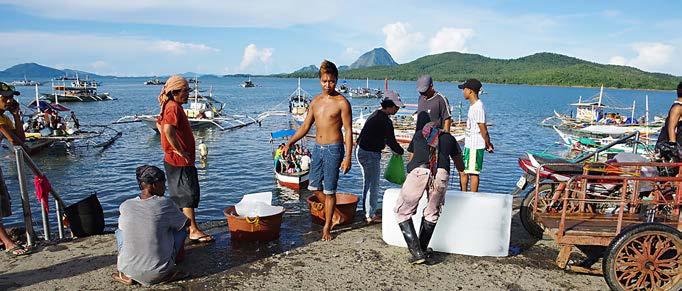
Float a loan to weather the storm Patron-client relations in the Philippines buffer fisheries against immediate impacts of natural disasters. But long-term sustainability may suffer due to the combination with current fishery conditions O’Neill, E. D., B. Crona, A. J. G. Ferrer, R. Pomeroy. 2019. From typhoons to traders: the role of patron-client relations in mediating fishery responses to natural disasters. Environmental Research Letters 14(4): 45015.

It takes a bit of nature to remain sane A framework to incorporate nature’s impact on mental health into city plans Bratman, G. N., C. B. Anderson, M. G. Berman, B. Cochran, S. de Vries, J. Flanders, C. Folke, H. Frumkin, J. J. Gross, T. Hartig, P. H. Kahn, M. Kuo, J. J. Lawler, P. S. Levin, T. Lindahl, A. Meyer-Lindenberg, R. Mitchell, Z. Y. Ouyang, J. Roe, L. Scarlett, J. R. Smith, M. van den Bosch, B. W. Wheeler, M. P. White, H. Zheng, G. C. Daily. 2019. Nature and mental health: an ecosystem service perspective. Science Advances 5(7): eaax0903.
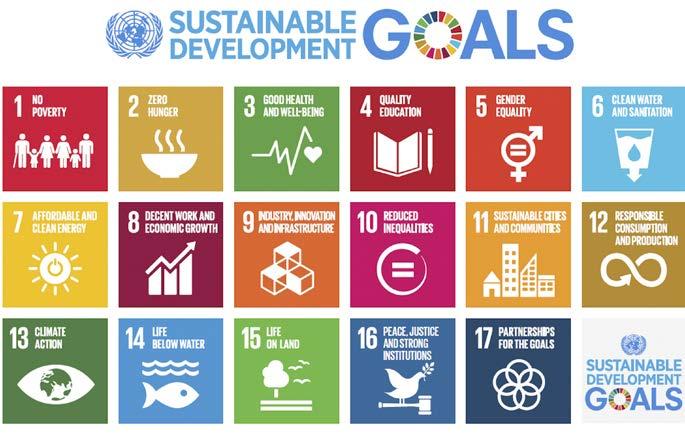
Agenda 2030 through the complexity lens The UN Agenda 2030 is a step forward, but is still too fragmented, simplistic and linear in its design and monitoring Selomane, O., B. Reyers, R. Biggs, M. Hamann. 2019. Harnessing insights from social-ecological systems research for monitoring sustainable development. Sustainability 11(4): 1190.
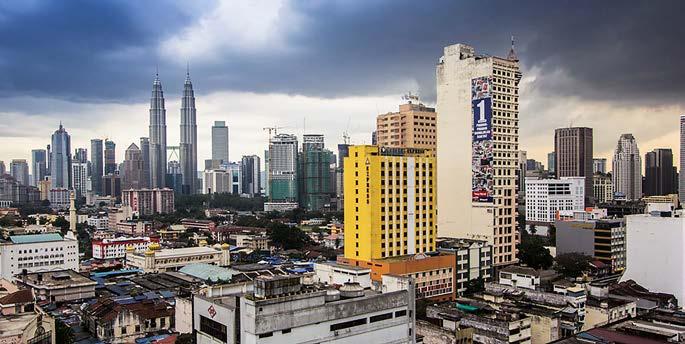
If a city is resilient, is it also sustainable? Researchers present a new framework to resolve this question Elmqvist, T., E. Andersson, N. Frantzeskaki, T. McPhearson, P. Olsson, O. Gaffney, K. Takeuchi, C. Folke. 2019. Sustainability and resilience for transformation in the urban century. Nature Sustainability 2(4): 267–273.










